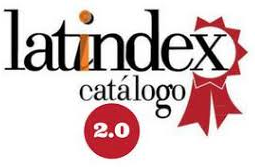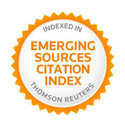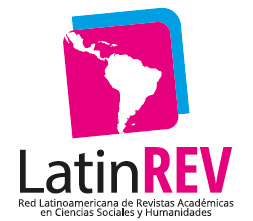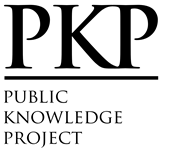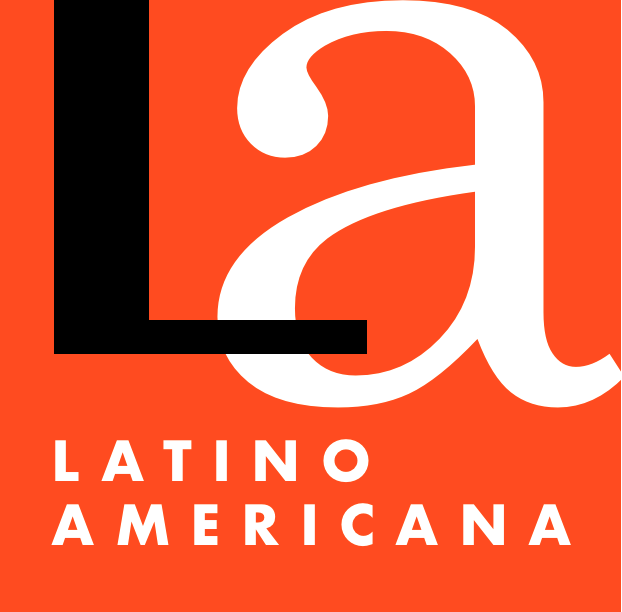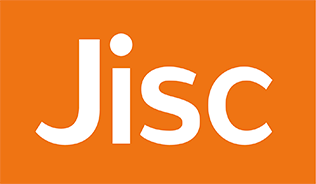Changes and continuities
The investigative agenda of political communication in Latin America
Abstract
This article intends to indentify and analyze key subjects in the contemporary investigation of political communication in Latin America. The premise of this analysis is that the study of media and political processes in Latin America helps to understand the contributions of regional studies to the rest of the field. Although the role of regional studies has been extensively debated in politics and in comparative sociology (Bates, 1997; Hall & Tarrow, 1998), it still has not been sufficiently discussed either in political communication or in the field of communication. This is especially surprising considering the great number of studies dedicated to international topics as well as the predominance of globalization debates within the field of communication during the last two years. Upon this foundation, the analysis is organized around three themes central to current investigations about the region: the mediatization of politics, the challenges faced by media democracy, and the links between media, civic participation, and political conflict.
Downloads
References
Alfaro, R. M. (2005). Hacia nuevas rutas éticas en nuestros medios: memoria de la campaña ciudadana sobre la ley de radio y televisión. Lima: Veeduría Ciudadana de la Comunicación Social.
Alfaro, R. M. (ed.) (2008). ¿Desarrollo? Encuentros y desencuentros entre medios y ciudadanía. Lima: Asociación de Comunicadores Calandria.
Alves, R. (2005). “From lapdog to watchdog: the role of the press in Latin America’s democratization” (p. 181-204). En: Burgh, H. de (ed.). Making journalists. London: Routledge.
Arcila Calderón, C., Cañizález, A. & Moret J. (2008). Los medios como proyección de las preocupaciones ciudadanas: monitoreo de medios impresos y audiovisuales en Venezuela durante 2006-2007. Comunicación: Estudios Venezolanos de Comunicación, 34,142, 80-93.
Bates, R. H. (1997). Area studies and the discipline: a useful controversy? PS: Political Science and Politics 30 (2), 166-9.
Beasley-Murray, J., Maxwell, C. & Herschberg, E. (2009). Latin America’s left turn: an introduction. Third World Quarterly 30 (2), 319-30.
Bisbal, M. (2004). Medios, ciudadanía y esfera pública en la Venezuela de hoy. Quorum Académico, 1 (1), 87-109.
Bisbal, M. (2006). Redescubrir el valor del periodismo en la Venezuela del presente. Contratexto 14, 52-78.
Bonilla, J. I. & García, M. E. (1995). Nuevas dinámicas de representación política: Espacio público, movimientos sociales y redes de comunicación. Diálogos de la Comunicación, 42, 5-17.
Bonner, M. (2009). State discourses, police violence and democratisation in Argentina. Bulletin of Latin American Research, 28 (2), 227-45.
Bourdieu, P. (1999). On Television. Nueva York: New Press.
Cañizales, A. & Correa, C. (2003). Venezuela: Situación del derecho a la libertad de expresión e información. Caracas. Espacio Público.
Carabaza, J., Lozano, J. C., González, J., Pasco, L., Reyes, L., Berumen, A. & Alvarez, P. (2007). Cobertura del medio ambiente en la televisión mexicana. Comunicación y Sociedad, 7, 45-76.
Catalán, C. & Sunkel, G. (1989). La política en pantalla. Santiago: ILET.
Cerbino, M. (ed.) (2005). Violencia en los medios de comunicación, generación noticiosa y percepción ciudadana. Quito: FLACSO.
Conaghan, C. (2005). Fujimori’s Peru: deception in the public sphere. Pittsburgh: University of Pittsburgh Press.
Conaghan, C. & de la Torre, C. (2008). The permanent campaign of Rafael Correa: making Ecuador’s plebiscitary presidency. International Journal of Press/Politics, 13 (3), 267-84.
Curran, J. & Park, M. J. (eds.) (2000). De-westernizing media studies. Londres: Arnold. de Abreu, A. (2002). A modernização da imprensa (1970-2000). Rio de Janeiro: Jorge Zahar Editor.
De la Torre, C. (2009). Populismo radical y democracia en los Andes’, Journal of Democracy, 1: 24-37. Esser, F. & Pfetsch, B. (eds.) (2004). Comparing political communication: theories, cases, and challenges. Cambridge: Cambridge University Press.
Fox, E. (ed.) (1988). Media and politics in Latin America: the struggle for democracy. Thousand Oaks, Ca: Sage.
Fox, E. & Waisbord, S. (eds.) (2002). Latin politics, global media. Austin, Texas: University of Texas Press.
Gill, J. & Hughes, S. (2005). Bureaucratic compliance with Mexico’s new access to information law. Critical Studies in Mass Communication, 22 (2), 121-37.
Gómez, J. C., Pacheco, A., Turbay, J. & Matiz, W. (2006). La personalización en la política, una práctica a prueba de reformas. Palabra Clave, 9 (2), 53-65.
González Bombal, I. (1996). La visibilidad pública de las asociaciones civiles. Buenos Aires: CEDES.
Gumucio, A. (2001). Making waves: participatory communication for social change. New York: Rockefeller Foundation.
Grebe, R. (2007). Evo Morales y los medios. Chasqui, 98, 10-15.
Hall, P. A. & Tarrow, S. (1998). Globalization and area studies: when is too broad too narrow? Chronicle of Higher Education, 44, B4-B5.
Hughes, S. (2003). How institutional entrepreneurs transformed Mexican journalism. Harvard International Journal of Press/Politics, 8 (3), 87-118.
Hughes, S. (2006). Newsrooms in conflict: journalism and the democratization of Mexico. PittsburghPA: University of Pittsburgh Press.
Hughes, S. & Guerrero, M. (2009). The disenchanted voter: emotional attachment, social stratification, and mediated politics in Mexico’s 2006 presidential election. The International Journal of Press/ Politics, 14 (3), 353-75.
Hughes, S. & Lawson, C. (2004). Propaganda and crony capitalism: partisan bias in Mexican television news. Latin American Research Review, 39 (3), 81-105.
Hughes, S. & Lawson, C. (2005). The barriers to media opening in Latin America. Political Communication, 22 (1), 9-25.
Kaiser, S. (2002). Escraches: demonstrations, communication and political memory in postdictatorial Argentina. Media, Culture & Society, 24 (4), 499-516.
Kernell, S. (1997). Going public: new strategies of presidential leadership. Washington, DC: CQ Press.
Kodrich, K. (2008). The role of state advertising in Latin American newspapers: was the demise of Nicaragua’s Barricada newspaper political sabotage? Bulletin of Latin American Research, 27 (1), 61-82.
Kowalchuk, L. (2009). Can movement tactics influence media coverage?: health-care struggle in the Salvadoran news. Latin American Research Review, 44 (2): 109-135.
Landi, O. (1992). Devórame otra vez. Buenos Aires: Planeta.
Larrain, S. & Valenzuela, A. (2004). Televisión y ciudadanía. Santiago: Fucatel.
Lawson, C. (2002). Building the fourth estate: democratization and the rise of a free press in Mexico. Berkeley: University of California Press.
Lozano, J. C. (2006). “Political advertising in Mexico”. En: Kaid, L. L. &
Holtz-Bacha, C. (eds.). The SAGE handbook of political advertising (p. 259-267). Thousand Oaks: Sage.
Luchessi, L. (2007). Narraciones del delito: pánico y control social. Diálogos de la Comunicación, 75, 1-8.
Luft, S. (2005). Jornalismo, medio ambiente e Amazonia: os desmatamentos nos jornais. São Paulo: Annablume.
Lugo, J. (2008). The media in Latin America. Milton Keynes: Open University Press.
Maia, R. (2009). Mediated deliberation: the 2005 referendum for banning firearm sales in Brazil. International Journal of Press/Politics, 14 (3), 313.
Mainwaring, S. & Pérez-Liñán, A. (2005). Why regions of the world are important: regional specificities and region-wide diffusion of democracy. Notre Dame, Illinois: University of Notre Dame. Kellogg Institute for International Studies. (Working paper; 322). Tomado de http://kellogg.nd.edu/publications/workingpapers/WPS/322.pdf el 10 de febrero de 2012.
Martín-Barbero, J. & Rey, G. (1999). Los ejercicios del ver. Barcelona: Gedisa.
Mastrini, G. & Becerra, M. (eds.) (2006). Periodistas y magnates: estructura y concentración de las industrias culturales en América Latina. Buenos Aires: Prometeo.
Matos, C. (2008). Journalism and political democracy in Brazil. Lanham, MD: Lexington.
Mazzoleni, G. & Schulz, W. (1999). “Mediatization” of politics: a challenge for democracy? Political Communication, 16 (3), 247–61.
McCann, J. & Lawson, C. (2006). Presidential campaigns and the knowledge gap in three transitional democracies. Political Research Quarterly, 59 (1), 13-22.
Miralles, A. M. (2003). Periodismo, opinión pública y agenda ciudadana. Bogotá: Norma.
Monsiváis, C. & Scherer, J. (2003). Tiempo de saber: prensa y poder en México. México: Editorial Nuevo Siglo.
Montenegro, S. (2007). Los medios de comunicación como actores políticos en Nicaragua. Managua. Centro de Investigación de la Comunicación.
Morgenstern, S. & Nacif, B. (eds.) (2002). Legislative politics in Latin America. Cambridge: Cambridge University Press.
Muraro, H. (1997). Políticos, periodistas y ciudadanos. Buenos Aires: Fondo de Cultura Económica.
Palaversich, D. (2006). The politics of drug trafficking in Mexican and Mexico-related narconovelas. Aztlan, 31 (2), 85-110.
Peruzzotti, E. & Smulovitz, C. (eds.) (2006). Enforcing the rule of law: social accountability in the new Latin American democracies. Pittsburgh: University of Pittsburgh Press.
Pinto, J. (2009). Transparency policy initiatives in Latin America: understanding policy outcomes from an institutional perspective. Communication Law & Policy, 14 (1), 41-71.
Plasser, F. (2000). American campaign techniques worldwide. Harvard International Journal of Press/Politics, 5 (4), 33-55.
Porto, M. (2005). Political controversies in Brazilian TV fiction: viewers interpretations of the telenovela Terra nostra. Television & New Media, 6 (4), 342-59.
Porto, M. (2007). Framing controversies: television and the 2002 presidential election in Brazil. Political Communication, 24 (1), 19-36.
Rey, G. (1998). Balsas y medusas: visibilidad comunicativa y narrativas políticas. Bogotá: CEREC Fundación Social.
Rey, G. (2003). Ver desde la ciudadanía: observatorios y veedurías de medios de comunicación en América Latina. Buenos Aires: Centro de Competencia en Comunicación para América Latina. Tomado de http://www.c3fes.net/docs/verdesdelaciudadania.pdf el 12 de febrero de 2012.
Rey, G. (2005). El cuerpo del delito. Bogotá: Centro de Competencia en Comunicación para América Latina.
Rincón, O. (2008). Los tele-presidentes: cerca del pueblo, lejos de la democracia. Bogotá: Centro de Competencia en Comunicación para América Latina.
Rincón, O., Bonilla, J., García, S. & Londoño, A. (2003). Campañas políticas presidenciales y medios de comunicación en Colombia 2001-2002. Bogotá: Friedrich Ebert Stiftung en Colombia (FESCOL); Universidad Javeriana.
Rockwell, R. & Janus, N. (2002a). Media power in Central America. Urbana, IL: University of Illinois Press.
Rockwell, R. & Janus, N. (2002b). The politics of coercion: advertising, media, and state power in Central America. Journalism, 3 (3), 331-54.
Rodríguez, C. (2001). Fissures in the mediascape: an international study of citizens’ media. Cresskill, New Jersey: Hampton Press.
Salazar, J. F. & Cordova, A. (2008). Imperfect media and the poetics of indigenous video in Latin America. En: Wilson, P. & Stewart, M. (eds.). Global indigenous media: cultures, poetics, and politics (p. 39-57). Durham, North Carolina: Duke University Press.
Sánchez Ruiz, E. E. (2007). “¿Concentración mediática o gobernabilidad democrática?: la ‘Ley Televisa’ como estudio de caso” (p. .137-172). En su: Gobernabilidad democrática, cultura política y medios de comunicación en México. Guadalajara, México: Universidad de Guadalajara.
Sartori, G. (1998). Homo videns: la sociedad teledirigida. México: Taurus.
Schmucler, H. & Mata, M. C. (eds.) (1992). Política y comunicación: ¿hay un lugar para la política en la cultura mediática? Córdoba: Universidad de Córdoba.
Seele, A. & Peruzzotti, E. (eds.) (2009). Participatory innovations and representative democracy in Latin America. Washington: Woodrow
Wilson Press; John Hopkins University Press.
Silva, P. (2004). Doing politics in a depoliticized society: social change and political deactivation in Chile. Bulletin of Latin American Research, 23 (1), 63-78.
Sinclair, J. (1999). Latin American television: a global view. Oxford: Oxford University Press.
Skidmore, T. (ed.) (1992). Television, politics, and the transition to democracy in Latin America. Washington, DC: Woodrow Wilson Center.
Stromback, J. (2008). Four phases of mediatization: an analysis of the mediatization of politics. International Journal of Press/Politics, 13 (3), 228-46.
Subite, E. & Gutierrez, M. (2006). Espacios de intermediación en tiempos de conflicto: medios de comunicación en Bolivia. La Paz: CIPCA CRS.
Sunkel, G. & Geoffroy, E. (eds) (2001). Concentración económica de los medios de comunicación. Santiago: Lom.
Torrico, E. & Sandoval, V. (2007). Un año de la constituyente en la prensa. La Paz: Observatorio Nacional de Medios y PNUD.
Waisbord. S. (1994). Television and election campaigns in Argentina. Journal of Communication, 44 (2), 125-35.
Waisbord, S. (1996). “Secular politics: the modernization of Argentine electioneering”. En: Swanson, D. & Mancini, P. (eds.). Politics, media, and modern democracy (p. 207-26). Westport, Connecticut: Praeger.
Waisbord, S. (2000). Watchdog journalism in South America. New York: Columbia University Press.
Waisbord, S. (2009). “Advocacy journalism in a global context: the ‘journalist’ and the ‘civic model’” (p. 371-85). En: Wahl-Jorgensen, K. & Hanitzsch, T. (eds.). Handbook of journalism studies. New York: Routledge.
Waisbord, S. & Peruzzotti, E. (2009). The environmental story that wasn’t: advocacy, journalism, and the ambientalismo movement in Argentina. Media, Culture & Society, 31 (5), 691-709.
Wallis, D. (2004). The media and democratic change in Mexico. Parliamentary Affairs, 57 (1), 118-30.
Copyright (c) 2013 Silvio Waisbord

This work is licensed under a Creative Commons Attribution-NonCommercial 4.0 International License.
The authors retain the copyright and guarantee the journal the right to be the first publication of the work. In case that a translation of the article already published in Austral Comunicación can be published in another journal, it is requested to record the original publication in the translated version.
The license used is CC BY-NC-SA, which allows sharing (copying and redistributing the material in any medium and format) and adapting (remixing, transforming and building on the material) under the following terms: attribution (acknowledge authorship) and non-commercial (the material cannot be used for commercial purposes). Update: February 1, 2022.
Austral Comunicación allows the author (s) to retain the publication rights without restrictions.








